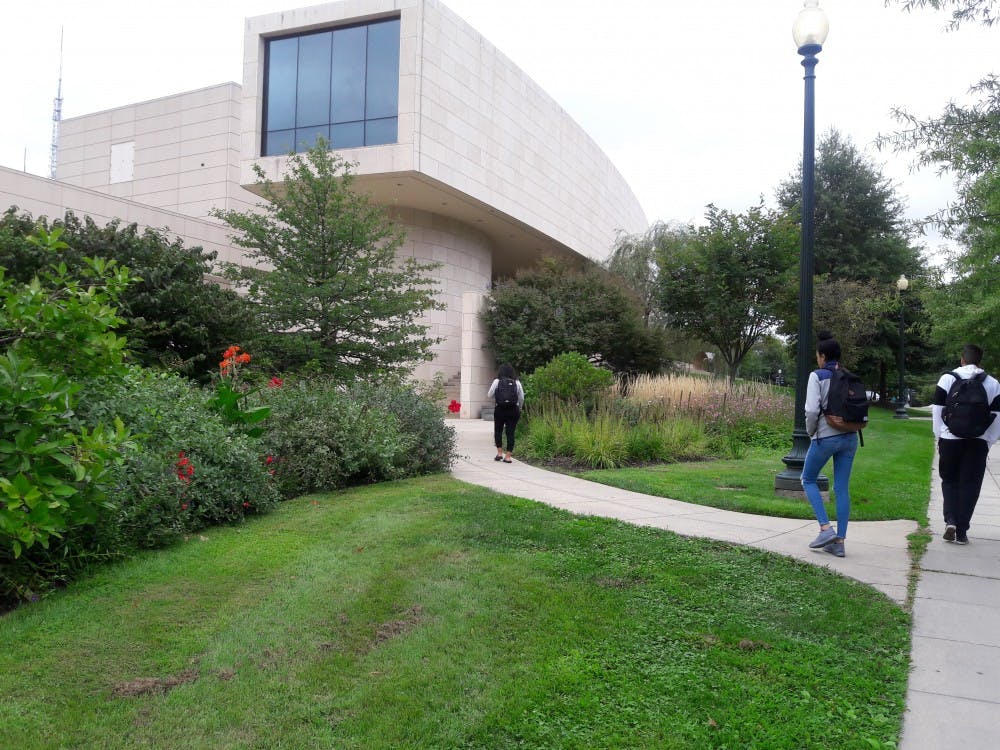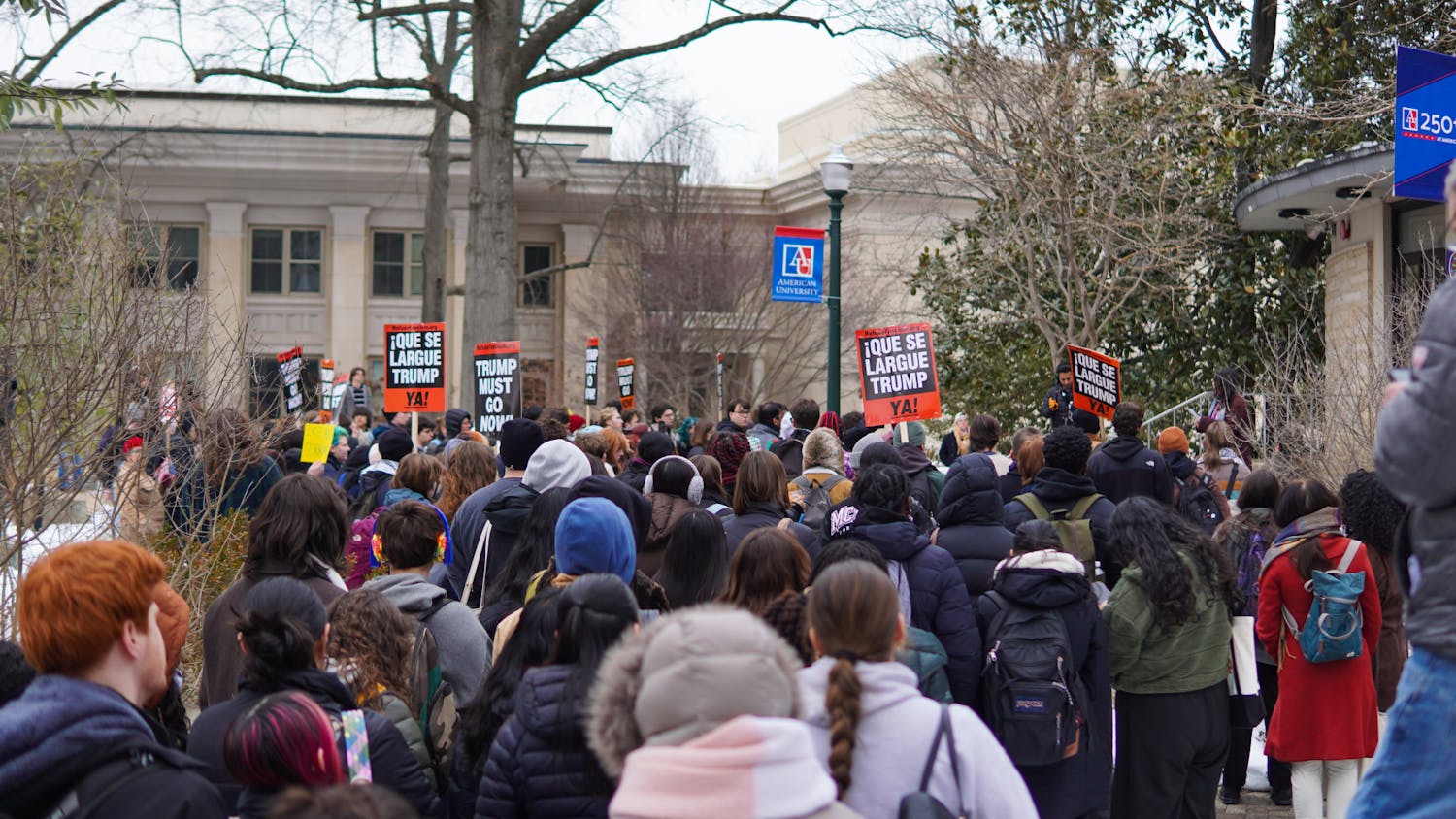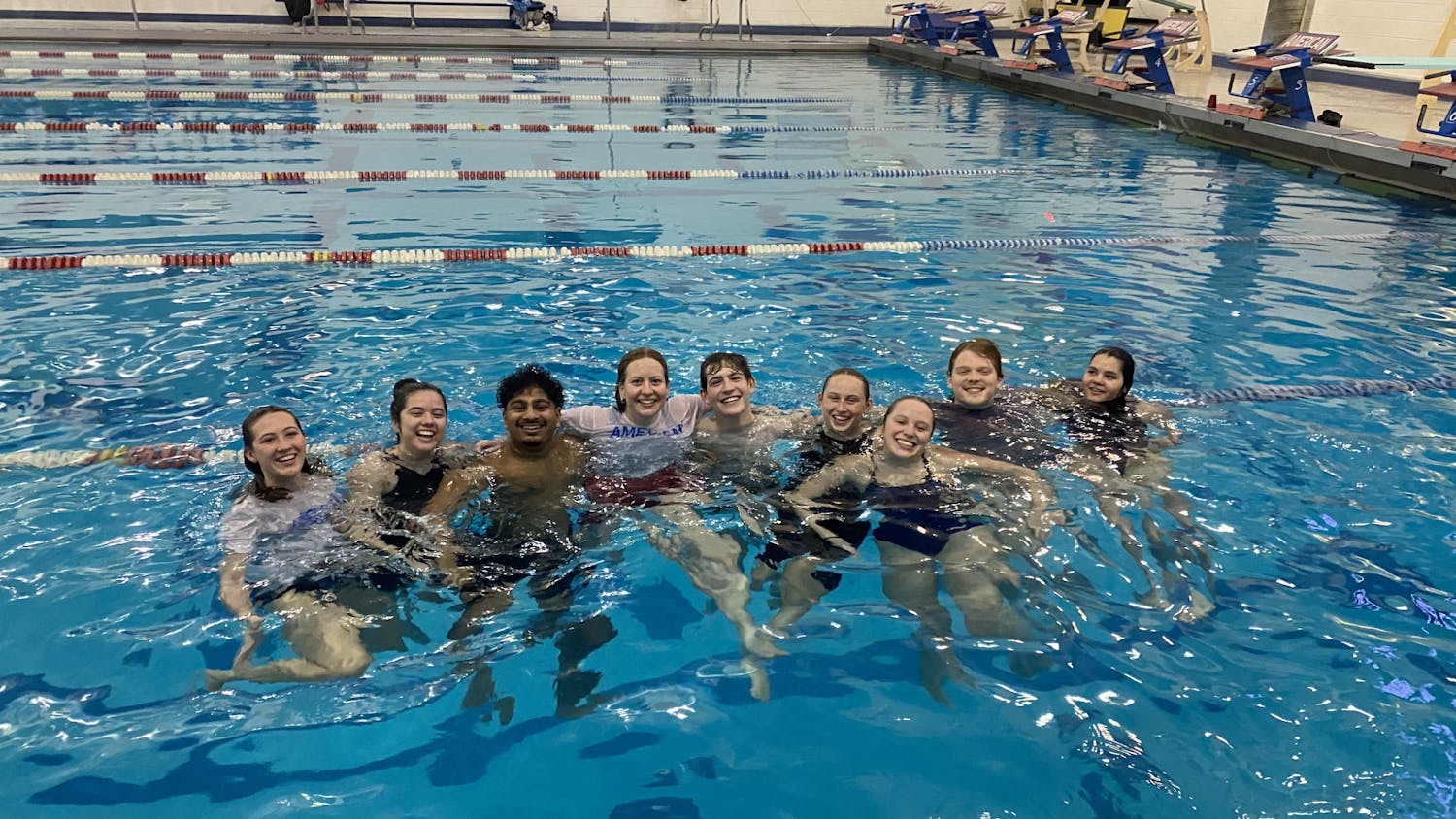Editor's note: This article appeared in The Eagle's March 2021 virtual print edition.
Like most of American University, individual music lessons have moved online during the coronavirus pandemic, forcing a new style of collaboration between students and instructors.
Music lessons are a high-risk activity for contracting the coronavirus. According to the International Performing Arts Aerosol study, playing musical instruments and singing produce a lot of aerosol. The study’s report provides information on different instruments and how much aerosol they release. It found that voice and wind instruments produce the most aerosol and are the riskiest instruments to use during COVID-19.
“I was very skeptical about the viability of online music lessons,” said Ethan Watermeier, a voice instructor at AU. “I have done a little online teaching before COVID, but there are limitations.”
Watermeier said that nothing will truly replace in-person lessons, but emphasized the importance of looking ahead to what the next step is.
Nancy Snider, director of the Applied Music Program and a professor in the Department of Performing Arts, said that collaboration between teachers and students is still as important as it was during in-person lessons. Collaborating virtually has fostered different ways that teachers can work with students on music pieces.
“We’ve figured out other things. My students send me recordings, and I send them recordings,” Snider said. “It’s a real collaboration between the teachers and students.”
Students also echoed the significance of keeping up regular practice.
“It’s been nice to see them and still have that continuity,” said Potter Clark, a junior who is taking lessons in Irish fiddle and conducting.
Senior Rebecca Bailey, who takes voice lessons, said that student-teacher interactions are not any different despite being on a digital platform.
“It’s made me look forward to when we can be in person,” Bailey said. “I miss working with accompanists during vocal practice.”
In fact, one other way of creating a sense of normalcy has been to reserve practice rooms at Katzen Arts Center and take lessons from there.
Watermeier praised Katzen Arts Center for allowing students to reserve practice rooms where students can practice and also have their lessons virtually, mentioning that some of his students in D.C. have done that.
He also added that instructors are doing what they can to accommodate students during a somewhat foreign format of lessons.
“I am trying to make sure I listen and that my students feel comfortable and have the support they need. That usually happens through checking in and seeing how they’re doing,” Watermeier said. “Developing a relationship entirely virtually has been challenging.”
Some students are adapting successfully to this new learning method.
“I am feeling as motivated, if not more motivated,” Clark said. “Being virtual makes me work harder. I spend more time preparing for my music lessons than I would in person.” Clark explained that this added motivation is something he would like to hold on to post-pandemic.
Some of the new skills that have been learned through virtual music lessons will prove useful in the future.
“We’ve been challenged to do self-tapes more,” Bailey said. “Knowing those skills are going to be useful when we can return to in person lessons.”
Some aspects of in-person music lessons, however, are irreplaceable, presenting further challenges. One challenge, Clark noted, was the inability for teachers to instantly correct mistakes, such as piano-fingering technique in person.
“Learning is a lot easier in person,” Clark said. “There’s something about communication that is lost doing music lessons virtually.”
With online music lessons becoming more common during COVID-19, it also presents a new set of challenges. It is still not known if the virtual teaching method will change music education permanently although it is very likely.
“More professors like myself are getting used to this,” Watermeier said. “I think this will change learning permanently.”





